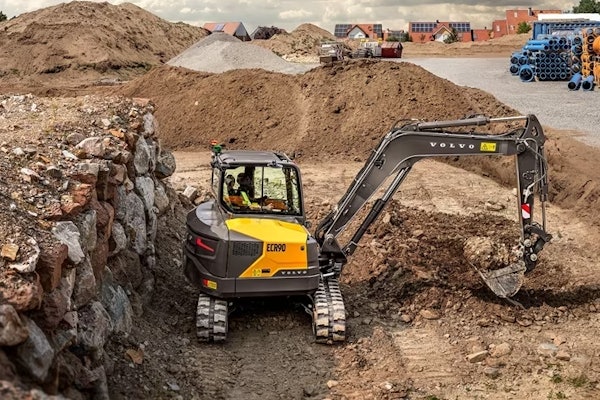 Jody Shilan
Jody ShilanWhenever a group of landscape contractors gets together, inevitably the topic of conversation always seems to drift toward “what to do about low-ballers.”
For those of you who are not familiar with this term, low-ballers are contractors that underprice work. Although we lump them all into one category, there are basically three types of low-ballers:
- Intentional
- Inexperienced
- Rule Breakers
It’s important to understand the differences between the three types so that you can educate yourselves as to how to compete with them, and not just stand around and complain with your buddies. Believe it or not, there are several ways to compete with low-ballers, none of which requires you to drop your prices just to get work.
I also think it’s important, as an industry, to stop wasting so much time focusing on low-ballers and spend more time focusing on our own businesses. Because, quite frankly, what do you think your competitors call you when you get the work and they don’t?
So let’s examine each low-baller group to understand their methodologies and how you can combat them in the landscaping battlefield.
Intentional low-ballers
Some contractors intentionally undercut prices just to get a signed contract with the hopes of making the money back on future work and change orders.
This concept is similar to big-box stores or supermarkets, which entice customers with loss leaders, or products that are priced at cost or even below cost. While they may lose money on the bargain priced laundry detergent, they get customers into their stores who will most likely buy other products that have much better margins.
While there is no guarantee that this will work, for stores like Wal-Mart or Walgreens, it usually does. At least there is a strategic thought process behind it. Some of you may even do this yourselves.
Inexperienced low-ballers
A second and more common reason that landscape contractors underprice their work is because they truly don’t understand their costs. These contractors are unfamiliar with concepts like overhead recovery, gross profit and net profit, and probably don’t have an average crew wage or profitable labor rate.
They are the ones driving around in shiny new trucks, buying new equipment every time they finish a project. If they are lucky, they just might be covering their costs.
Unfortunately, they won’t realize their company’s actual position until they get a huge tax bill or start falling behind on payments. If they don’t get their acts together, chances are that they will be out of business within the national average of 3-5 years. What’s worse, as soon as ABC Landscapes goes out of business, DEF Landscapes and GHI Landscapes are ready to take their place.
Rule breakers
The third and most problematic reason that everybody (both contractors and consumers) needs to question low-ball contractors is that they don’t play by the rules. Now I’m not talking about throwing an elbow here or there; I’m talking about companies that charge less because they are uninsured or underinsured, don’t have the proper certifications and licenses, and/or hire day laborers and pay them cash.
I don’t know how many times I’ve met with clients who bought a discount landscape, only to find out that a year later their super-duper “nice price” was only made possible due to corner cutting and inferior installation techniques.
Their bargain basement contractor, who promised great quality and service, seems to no longer answer their phone calls and may already be out of business. Oh, and by the way, that one-year, unconditional plant warranty doesn’t seem to be worth the paper it was written on.
What you can do
Instead of complaining about low-ballers or trying to match their prices, all of us should take the time to educate our customers and our potential customers about what to look for when hiring a landscape contractor.
While there are bargains and deals in every marketplace, when it comes time to hiring a landscape professional, you should suggest that they look at more than just the price.
Do you really think that your customer wants to run the risk of being sued when an uninsured worker gets hurt at their house or they find out that there was a lien put on their property because their contractor never paid his subs? I sincerely doubt it.
In addition to this, we all have an obligation to educate our fellow contractors, or at the very least talk to them about proper pricing. Now, I’m not saying you should sit down with your biggest competitor over a beer and compare numbers; however, new and uneducated contractors need to understand how to price their services.
Given at least a fundamental understanding of the market, he or she will charge more and compete on the same playing field. At best, they will become a colleague and help raise the standards and professionalism of the landscape industry.
EDITOR’S NOTE: This article was written by Jody Shilan. Shilan is a landscape business consultant and offers advice to landscape professionals through his website, fromdesign2build.com.









